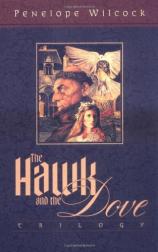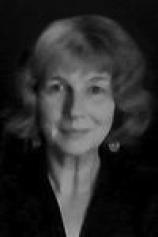The Hawk and the Dove Trilogy
Review
The Hawk and the Dove Trilogy
For several years a friend has been pushing this book at me: “You’ve really got to read this.” I finally took her recommendation seriously, and now I pass along the enthusiasm for this hefty volume (560 pages), which is really three short novels bound as one.
One caveat: Right off the bat you have to stretch your imagination to allow for the intergenerational setup --- that a contemporary British woman would know detailed ancestral stories from the 14th century. Each chapter begins and ends in this modern, Anglican household, where Mother uses an heirloom story set in the great-great-great uncle’s Benedictine abbey of St. Alcuin to teach a life lesson to her 15-year-old daughter. This format suited my pattern of reading one (self-contained) chapter each evening, savoring the insights drawn from the characterizations of the monks.
The principal monastic is the abbot. By birth his name was Peregrine, meaning “hawk” --- a word that well described his temperament as well as his craggy countenance. But as a Benedictine his name was Columba, meaning “dove.” Early in the first book, Peregrine is savagely beaten by Easter guests seeking revenge against his father. They cripple Peregrine’s hands and legs and leave him to die, but in God’s mercy the path of suffering leads to humbling transformations, which are portrayed in his dealings with his monastic brothers.
You get to know these monks individually, especially several who are introduced as young novices and subsequently mature in their Christian faith and in their self-knowledge under Peregrine’s tutelage. There’s Francis, so cheerful and jesting that the novice master asks Peregrine to ferret out his insincerity. Or is it insecurity? There’s angry Cormac, assigned to work under a critical supervisor, but within sight of a referee who doesn’t let things get out of hand. There’s impetuous Thomas, chosen as Peregrine’s own personal assistant --- even helping him cut his food and don his clothes. They, and Peregrine, wind themselves around your heart.
One particularly strong story, early in book two (“The Wounds of God”), takes place outside the abbey, when Peregrine (with Thomas) travels to an Augustinian priory to participate in a theological debate “concerning the nature of God, whether his supreme manifestation be in justice or in mercy.” Here, and later in book three, serious theological issues are discussed, not as sermons but rather within the context of a story.
In the third book of the trilogy (“The Long Fall”), the author wisely abandons the contemporary framework, which by now has outlived its usefulness. Here the full account focuses on the Benedictines. The spotlight is on Thomas and his devotion to Peregrine, who is further disabled by a stroke and aphasia and confined to the infirmary --- think nursing home, without any modern amenities. In an “author’s note” at the end of the book, Wilcock acknowledges that she worked hard to present an “authentic” but not overly explicit portrayal of the realities of disabilities that too often curtail people’s participation in Christian communities --- even the incapacitating fear of incontinence.
This is a wonderfully insightful volume, with a rich historical storyline. There’s more substantial content here than in much Christian fiction --- about grace, about leadership and loyalty, about humility, about disability and suffering. About the hawk as well as the dove.
Reviewed by Evelyn Bence on January 11, 2000
The Hawk and the Dove Trilogy
- Publication Date: January 21, 2000
- Genres: Christian, Historical Fiction
- Paperback: 560 pages
- Publisher: Crossway Books
- ISBN-10: 1581341385
- ISBN-13: 9781581341386





